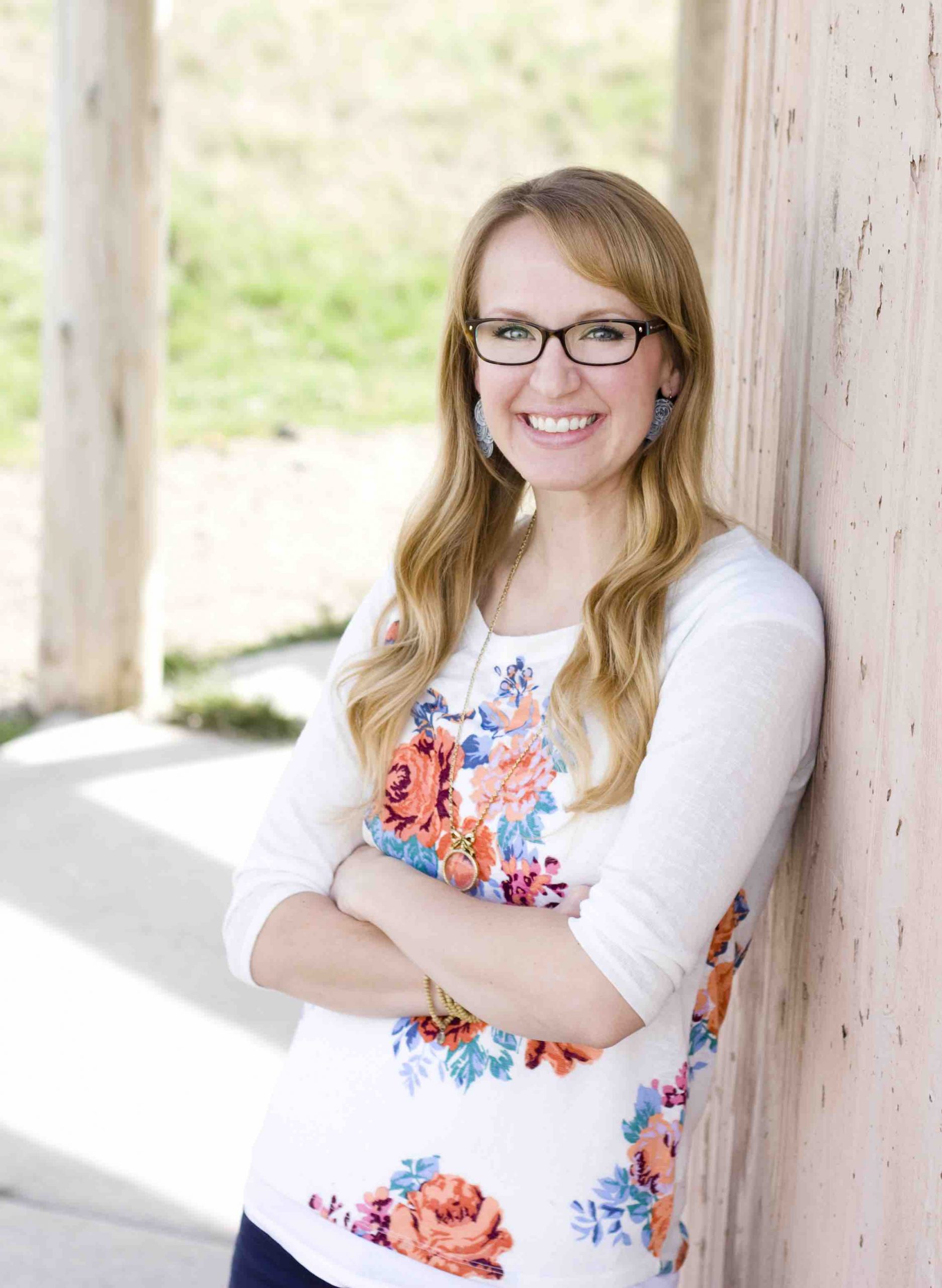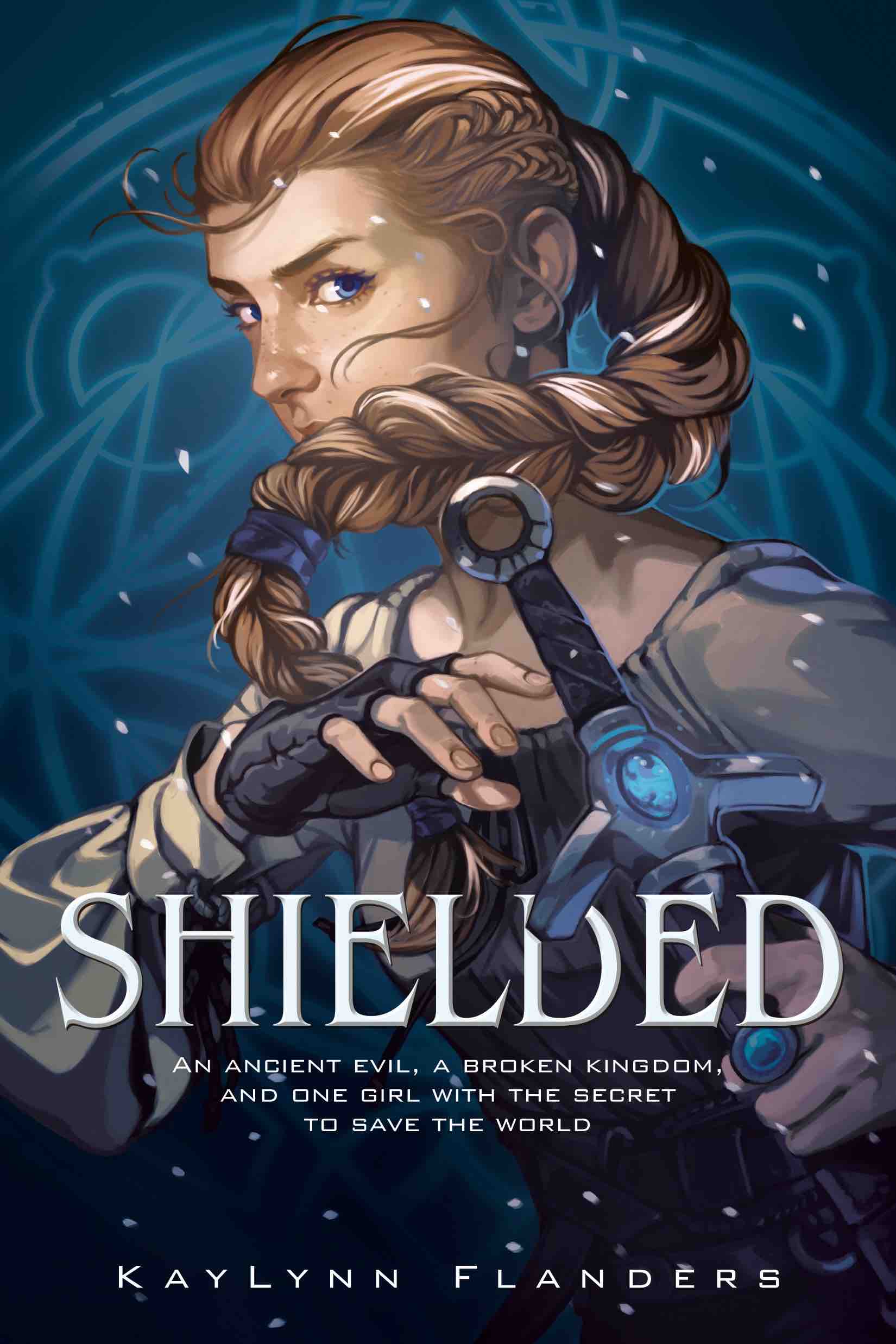 KayLynn Flanders is the author of Shielded. Below is a complete transcript of her interview with Cracking the Cover.
KayLynn Flanders is the author of Shielded. Below is a complete transcript of her interview with Cracking the Cover.
Why do you write? Why specifically YA?
I believe strongly in the power of words to make the world a brighter, more hopeful place. I grew up reading all the time, but it’s different now than when I was younger. When you’re a teen, the possibilities for your life, and even for who you are, are still unknown. It’s when the future is most unclear, yet it’s also when you have the most options in front of you. It’s such a short, fleeting time—only a few years—yet those years carry weight for the rest of your life. I remember setting goals and working hard to reach them, learning important lessons that I still use to this day.
You only get to be a teen once, and since then, I’ve read so many books that I wish I’d had when I was a teen. So I’m trying to write that kind of book—one I’d have cherished, and spent money to put a copy on my shelf so I didn’t have to keep checking it out from the library to re-read. One with bent pages and a cracked spine and my name scrawled on the title page underneath the author’s. The kind that could bring me comfort just by staring at it on my shelf. Because life is hard. Life is messy. The unknowns can be dark and scary, but escaping that, even for only as long as it takes to read a few hundred pages, makes a big difference. A book can change your outlook. Change your attitude. Give you hope. Strength. A peek into a different world. Stories can change your life.
Shielded is your debut novel. Briefly take me through the story of how it came to be. (Where the idea came from, path to publishing, etc.)
Reading has always been a big part of my life. I believe words have the power to change people, because they changed me. Opened my eyes. Created shared emotions and safe places to experience new things. But every time I tried to write my own stories, I’d quit five pages in. Because writing is hard. But I never lost my love of reading and words, enough that I studied editing in college. I was a freelance editor for about seven years before two key incidents started me on my writing journey.
The first incident was a dream I had one night. Three girls were in extreme danger, and I woke up right before something bad happened. In that moment between dream and awake, while my heart pounded and those characters were still real, I needed a solution to save them. Some way for them to escape the danger chasing them. The only answer I could think of was magic.
That dream, with its danger and magic, stayed with me, growing over a few months as I asked questions about who the characters were, why they were in danger, and how they got out of danger. The dream was really different from what the book turned into (there were neon yellow tanks in the dream that obviously didn’t make it into the book), but that first scene that came as inspiration for the rest of Shielded stayed through all the many drafts.
The second incident that put me on my writing path was attending a writing conference with my friend. She wanted to write a book, and I wanted to find more editing clients. But while at that conference, the keynote speaker talked about how powerful stories are. How they create connections in a world fixated on dividing. Sitting in that hotel conference room, feeling dissatisfied with most of the books I’d read recently, I felt like maybe I had light to share with the world. That maybe I could add my story, and maybe people would connect with it.
But I wanted to do it right. I’ve read enough books in my life to know what I like and don’t like. Because I’d never written a book before, my first full draft of Shielded was not great. It wasn’t even that good. But I kept going to writing conferences, kept asking my friends and family to read and give feedback, found a writing group, and kept at it. There were ups and downs as I worked on the manuscript: two miscarriages, two babies born, vacations, and even a puppy joined the family. But my nights were filled with Jennesara and her struggle to find herself and protect those she loves.
With my background in editing, I wasn’t afraid to toss anything out, as long as the story got better. It took years of work, and about fourteen massive revisions, before I signed with my agent. After I signed, I did another huge revision—even took out a point-of-view character—before my agent pitched the manuscript to editors at various publishing houses. And it was another year before we found an editor who loved Shielded as much as we did. So from start to finish, including the edits with my editor at Delacorte Press, Shielded has been through about twenty different variations over the past five years.
But this is the best version yet, and I am so excited to share this story with the world, and hope it connects with readers who are looking for a little more hope in the world.
 Jenna begins her journey as someone hiding in plain sight and ends it coming full circle. How did her character evolve during the writing process?
Jenna begins her journey as someone hiding in plain sight and ends it coming full circle. How did her character evolve during the writing process?
Jenna’s voice was fairly clear in my head from the beginning, but with each revision, I got a deeper understanding of her character, of why she acted the way she did. In the early drafts, Jenna was more passive and resentful of her situation and the required secrecy. But as I made changes and dug deeper, she became more active and made the best of whatever situation she was in.
A streak of white hair marks someone with magic. How did this detail come into being?
I laugh every time I think about this, but I also love it. In college, I had a roommate who loved a show called What Not To Wear (I grew to love it too!). Stacy London was a co-host on that show, and she has a natural grey streak in the front of her hair caused by Poliosis. I always thought it was really cool, but then one episode it was gone! Stacy explained that it was only visible if she parted her hair in the right place, and…it stuck with me. It was like a really cool secret identity. And with Jenna and her magic, I wanted another layer of tension—not just that she had magic and wasn’t supposed to, but that there was a big tell-tale sign of it that she’d have to work to keep hidden. So, yeah. It originated from Stacy London and What Not to Wear.
Jenna is expected to become a queen — a sort of figurehead — and yet, she is allowed to train to fight instead of sitting and doing needlepoint. Other than this being important to obvious plot points, what does it say about the family/place/time she lives in?
Her kingdom was founded by warriors who vowed to protect the Plateau from the effects of the magic they brought to it. So fighting and training have been a big part of their culture, especially for the royal family, from the beginning. When Shielded starts, many Hálendians had drifted away from that tradition, and see Jenna’s training as old fashioned or improper. But Jenna loves it. When she was younger, it was a chance to be with her brother. Now that she’s older, it’s the ability to control something in her life, even if that something is only moving in the precise forms she learns from the weapons master. Her father ultimately allows it because he wants her to be happy and safe, and her training provides her with both.
Shielded ends with some unanswered questions. How many more books will there be in this world? Will Jenna be at the center of them?
There will be another book in the world of Shielded! The series will be a duology, and the second book will be a companion novel, carrying the story from where Shielded leaves off, but from two different point-of-view characters. I won’t reveal who those characters are, as I don’t want to spoil anything.
You have a degree in English Language and editing, and have worked as a freelance editor and book designer. How does that experience tie into writing?
It’s both really helpful, and really challenging at times. Drafting new words is difficult for me, since my internal editor is pretty ingrained. But I have years of practice looking at sentences and words and finding a different way to say them, and that’s really helpful both on the micro and macro level of writing. The reason I became an editor is because I love seeing words shine brighter and communicate more effectively, so I don’t get the revision burnout a lot of writers experience—I love seeing the story get better with every draft!
What are you working on now?
I’m currently working on a retelling I wrote while Shielded was on submission with editors a couple of years ago. It’s got loyalty and betrayal, forests of oaks with huge, twisty branches, and a knifer who must choose whether to trust the boy who’s always been her enemy, or her friends, who have started crossing lines she’s not willing to cross.
Is there a book from your own youth that still resonates with you today?
Yes! I read a lot of books growing up. It was my wind-down after school, my reward for finishing my homework. I can’t pick just one, so here are a few:
I read Jane Eyre in sixth grade because it was worth a ton of points on the Accelerated Reader program my school was doing. It was a hefty book for an eleven-year-old, but I loved it. The power of Charlotte Brontë’s words in connecting me with Jane and her situation was mesmerizing. I loved it so much, I re-read it almost every Christmas Break through junior high and high school.
I also remember reading Ender’s Game by Orson Scott Card and being completely blown away by the twist at the end. That book, and the other three books in the original series, stretched my mind and made me think about things I’d never thought about.
I remember The Sword of Shannara books by Terry Brooks, David Eddings’s Belgariad series, and the Wheel of Time series by Robert Jordan being the books that got me into fantasy. These were books I read in a day, that I stayed up late to finish, and took with me everywhere so I could get a few more pages in. The magic and terror and hope in those worlds are the type of book I want to create.
